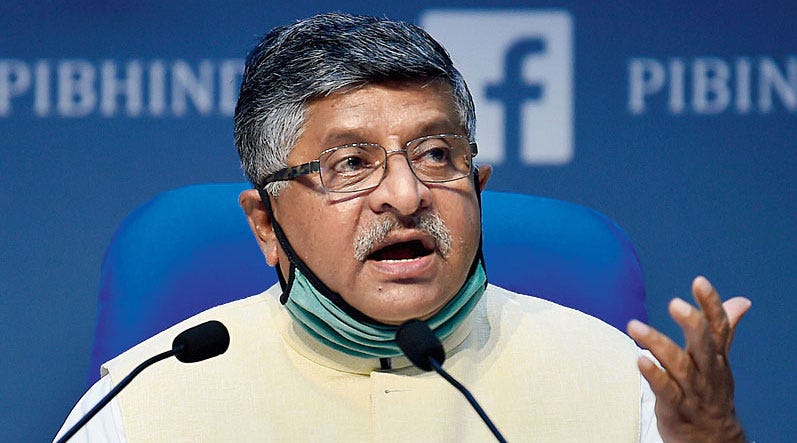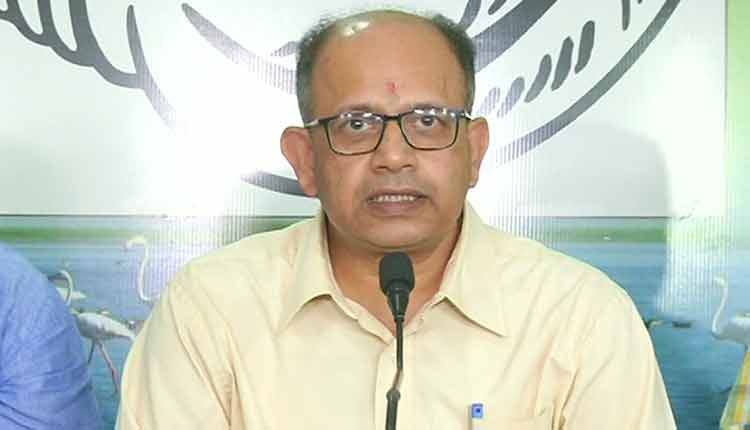What the Parliamentary Standing Committee on Finance has said on Big Tech issues
Here are some of the prominent statements by members of the committee.
Jayant Sinha – Committee Chairman
On summoning big tech companies before the committee
“All of the major companies we are going to invite... Google, Apple, Facebook, Twitter, Amazon, Microsoft and others. Competition laws are evolving worldwide to meet the challenges associated with the digital markets. It is very important to look at our competition law to see whether it is equal to those in advanced jurisdictions like the European Union, United States, Australia and the United Kingdom.”
According to Sinha, a Bill to amend the Competition Commission of India (CCI) Act – enacted in 2002 and last amended in 2007 – will be introduced soon and have provisions to deal with the anti-competition practices of tech giants.
Editorial co-authored with Rajeev Chandrashekhar titled, “India must lead in regulating Big Tech”
On Social Media Platforms: “Big Tech has also been accumulating vast, unregulated powers. For instance, social media platforms have the power to shape narratives and, therefore, incite public behavior. When used by bad actors, social media platforms become a dangerous force multiplier for fomenting hate and violence. Conversely, these platforms also have the power to silence opinions by playing the role of censor and publisher.”
On E-commerce: “E-commerce platforms have the ability to make or break millions of small merchants. Their pricing and promotion decisions can be managed subtly to favour some merchants and their own private label products. Big Tech companies have also been avid acquirers of smaller, fast-growing companies — thereby snuffing out competition before it gets a chance to establish itself.”
On misuse of data and big tech’s low tax liability: “At a click, Big Tech barons can summon up this information and sell it to whoever they want. Moreover, this transaction happens outside the country beyond the reach of our tax authorities. So Big Tech takes full advantage of a country’s prosperity yet makes limited tax contributions.”
On competitiveness of Big Tech: “Big Tech often engages in competitive practices that require detailed scrutiny by the Competition Commission of India. These practices include tying or bundling different products and services together, acquisition of competitors, predatory pricing, and exclusive arrangements with the trade.”
On regulation of Big Tech: “Our current legal and technical framework has to evolve to regulate all these emerging Big Tech powers. Our framework must be integrated, flexible, and dynamic to stay ahead of fast-evolving technologies and competitive conduct. We will need to ensure that we close gaps across laws such as the Telegraph Act, the TRAI Act, the IT Act, IT intermediary guidelines, the proposed Data Protection Act, various competition laws and rules, and the Indian Penal code. It is imperative that we take the lead globally in regulating Big Tech. We must also harmonize our regulatory framework with the US and the European Union.”
Manish Tewari (Member, Finance Committee)
Dissent Notes in PDP Committee and opposition to Big Tech players
Manish Tewari submitted a dissent note to the PDP Committee against the dilution of penalties in the PDP Bill. He advocated for financial penalties on data fiduciaries.
He said: “Last-minute dilution (of penalties)..are strongly suggestive of last-minute panic lobbying by Big Tech companies for these provisions that were part of the Original PDP Bill referred to committee by the House. They remained unamended from the date of commencement of the deliberations to the tabling of the penultimate and the final draft of the Bill. No reasonable or rational justification has been provided for this change”
In the 2019 draft of Pthe DP Bill, a penalty of either Rs. 5 crore or 2% of the company’s total worldwide turnover of the preceding financial year was prescribed for a data fiduciary for committing a particular offense. Similarly, Clause 57(2) of the 2019 draft of Pthe DP Bill prescribed at Rs 15 crore or 4% of the company’s total worldwide turnover.
However, all penalties were diluted and clauses were amended to read “as may be prescribed” in the final draft. To this Tewari said: These amendments will make India a laughing stock in the world and should not be a part of the proposed bill being sent up to the parliament. The original Section 57(1), (2) & (3) including all the definitions & provisos contained in it must be retained in their original form as proposed in the Bill referred by the House to the Joint Committee for Consideration.”
Sushil Kumar Modi (Member, Finance Committee, MP Rajya Sabha)
Zero-Hour Speech in Parliament on Big Tech firms
Taxing ads revenue of big tech firms: On December 14, 2021, Mr. Modi in his zero-hour speech talked about the ad revenues of Facebook and Google. He said that
“via its advertisement reseller model, big techs send away a major portion of their ad earnings. Facebook sends 90 per cent of gross advertisement revenues to the global subsidiary, while Google India sends 87 per cent. Big techs use the journalistic content of traditional news platforms and are getting rich at the expense of traditional media”
On Content Moderation: In the same speech, Mr Modi said: “Facebook does not flag problematic content like fake, misinformation and hate speech. Facebook spends a minuscule 13% of its budget to flag content in markets outside the US. It lacks the capacity to flag content for Hindi and Bengali.”
Demand for an independent regulatory body: He urged the house that India must form an independent regulatory body that ensures a legislative framework which shall oversee the activities of these Big Tech companies and also ensures that these platforms dedicate proper budgetary allocation towards ‘content moderation’ and ‘revenue sharing’ with traditional media.
Ravi Shankar Prasad (Member, Finance Committee, ex-minister of MeitY)
Net-neutrality
Mr. Prasad denied permission to Facebook’s Free Basics platform on the grounds that it provided access to free internet only through one gate i.e. Facebook’s. He added that the right to non-discriminatory access to the internet is non-negotiable in India.
This move came in the light of TRAI’s ruling against discriminatory pricing for different data platforms which said: “operators cannot enter into pacts with internet companies to subsidise access to some websites.”
Strict enforcement of IT (Intermediary Guidelines and Digital Media Ethics Code) Rules, 2021
Mr. Prasad came down on tech companies with a strong hand to abide by the IT Rules. He said: “Social media companies willing to do business in India will have to abide by the law of the land as India will not compromise its digital sovereignty.”
Amar Patnaik (Member, Finance Committee, ex-CAG officer)
When Google deposed before the Parliamentary Committee on PDP Bill, some panel members including Amar Patnaik asked them if the search engine is “controlling the choices of your users, isn’t it a violation of fundamental rights?”
During the meeting, MPs cutting across party lines asked how can Google be a “neutral platform” when it is engaged in both advertising and content, and how is it possible that it does not give “preferential treatment” to some advertisers in search results?





